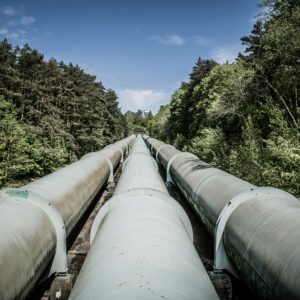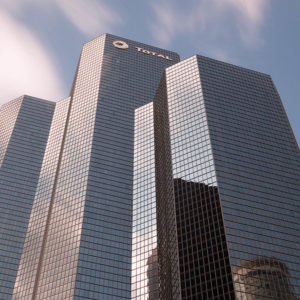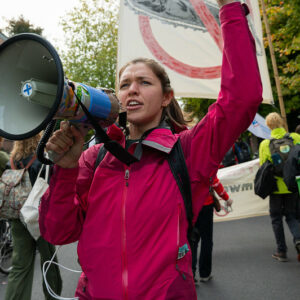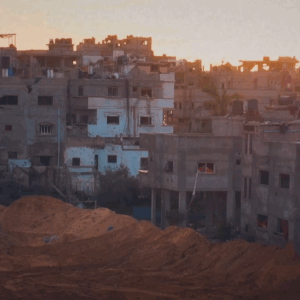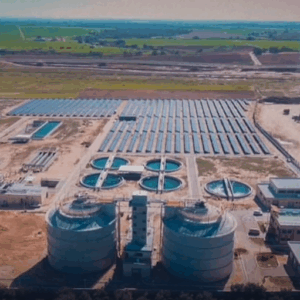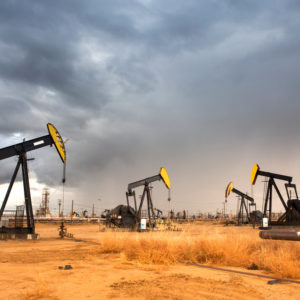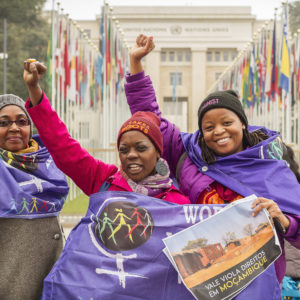Victory! French court orders disclosure of evidence in Total Uganda case
September 18, 2025 – Following the hearing held on May 15 in the “Total Uganda” case, the Paris Civil Court has issued a crucial ruling ordering Total to disclose documents deemed essential evidence by the plaintiffs.
For the affected communities and the supporting organizations, this represents a significant step forward in the legal action initiated two years ago against Total, seeking justice for human rights violations linked to the Tilenga and EACOP mega oil projects in Uganda.
To recap, this legal action was launched in June 2023 under France’s Duty of Vigilance Law by 26 individuals directly affected by the Tilenga and EACOP projects, human rights defender Maxwell Atuhura, and five Ugandan and French organizations (AFIEGO, Friends of the Earth France, NAPE/Friends of the Earth Uganda, Survie, and TASHA Research Institute), against oil giant Total.
Due to the company’s refusal to share certain key documents needed to establish its liability, the plaintiffs were forced to take the matter to court to compel disclosure. This request was presented during the May 15, 2025 hearing before the Paris Civil Court1.
For the associations and affected communities, today’s ruling 2 marks real progress. It helps address the profound information asymmetry between transnational corporations, often the sole holders of crucial evidence, and the affected individuals, who nevertheless bear the burden of proof. This decision is therefore an important step toward rebalancing this inequality, partially making up for the lack of a reversal of the burden of proof, something civil society has long demanded to facilitate effective access to justice.
While Total had tried to hide behind its subsidiaries by claiming that the majority of the documents belonged to them, the court also stressed that the plaintiffs were justified in directing their demand to the parent company, as part of its duty of vigilance.
These documents should allow for a more precise assessment of whether or not Total has complied with its obligations under the Duty of Vigilance law and help determine the extent of the harm suffered by the plaintiffs.
This ruling marks a decisive victory in the fight against the secrecy behind which multinationals, Total in particular, too often hide to avoid being held accountable. It took a hard-fought, year-long battle to obtain access to this evidence, so we are relieved to have won. This was a necessary precondition for the court to finally examine the merits of the case.
Under the pressure of this legal action, and following letters sent by the plaintiffs’ lawyers, Total’s subsidiaries, TotalEnergies E&P Uganda and EACOP Ltd, had finally disclosed, a few days before the hearing and then just before the summer, almost all of the individual forms of the affected people, detailing in particular the amount of compensation paid, as well as the food rations received. Furthermore, Total had also eventually handed over some of the reports 3 that had been requested by the plaintiffs for nearly a year, first through an amicable request, then a formal notice to produce 4, and finally through the court filing.
The ruling on the disclosure request, initially set for July 3, 2025, was delayed by over two months after many of the documents were submitted just days before the scheduled date 5. In fact, three weeks after the hearing in May, Total had urgently requested its subsidiaries to transmit documents related to the procedure that had not yet been sent. The company has not explained this reversal, nor the reasons why it had not given this instruction to its subsidiaries as early as July 2024, when the plaintiffs had amicably requested these documents from Total, nor since the judge was seized of the matter.
It seems that Total, perhaps sensing an unfavorable decision was coming, sought to save face at the last minute by asking its subsidiaries to communicate several reports and most of the forms. Yet, it had been refusing to do so for months, hiding behind their alleged independence, despite the effective control it exercises over them, an argument that the court found unconvincing.
The plaintiffs welcome the judge’s injunction ordering Total to disclose the final pieces of evidence that the company had refused to provide until now. In particular, Total had resisted to the very end disclosing the reports establishing compensation rates.
Total has a period of a month to transmit the missing documents, under penalty of a fine of 1 000 euros per day of delay. Fueled by these new documents, the exchange of written submissions will therefore resume, before a hearing on the merits of the case is scheduled, likely in 2026.
See May 2025 press brief: “Total in Court: The Tough Fight for Access to Evidence”
The court’s ruling is available here (in French only).
The reports transmitted by Total on June 25, 2025, are as follow: the completion audit regarding dry rations distributions for PAPs, the monitoring of the PAPs‘ capacity to produce their own food, part of the minutes of the Human Rights Steering Committee, the flood study carried out in 2021, as well as the District Land Board’s report defining compensation rates of crops and structures.
The formal notice to disclose (sommation de communiquer) is available here (in French only).
The judge had also scheduled a new hearing on July 10, 2025, to follow up with both parties regarding the latest documents provided by Total.





